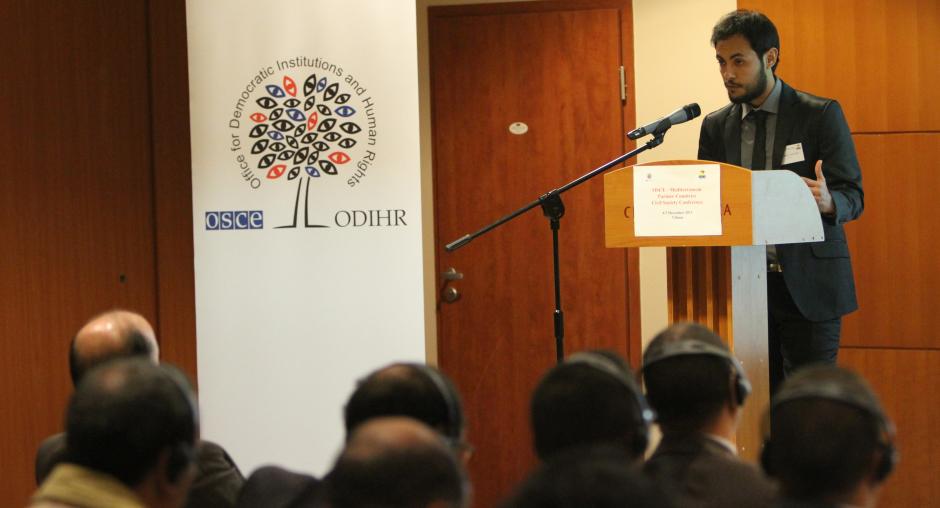OSCE civil society conference on challenges facing Mediterranean democracies in transition

VILNIUS, 4 December 2011 – Encouraging international co-operation between civil society groups from OSCE participating States and Mediterranean Partners at a time of rapid change and transition in the Middle East and North Africa was highlighted at the start of a two-day conference in Vilnius today.
The civil society conference, which is taking place two days before the OSCE Ministerial Council is a forum where more than 80 civil society representatives from OSCE participating States and the Mediterranean Partners of Co-operation will network, share ideas on electoral good practice, political participation, justice and legal reform. They will also discuss ways to counter intolerance and discrimination in democracies in transition.
During the working sessions, civil society representatives will draft recommendations to be presented to the OSCE Chairmanship ahead of the Ministerial Council, with regards to possible future engagement with civil society in Mediterranean Partner States.
Opening the conference, Lithuanian Vice-Minister of Foreign Affairs Evaldas Ignatavičius said that civil society has been a key driver of political change in the Middle East and North Africa, and learning from the experiences of other countries could help civil society keep up the pace of reform.
“Through its links with the OSCE Mediterranean Partners for Co-operation, the OSCE can serve as a platform to develop a valuable exchange of experiences among civil society groups from the OSCE region and those in the Mediterranean Partner States,” he said.
Achref Aouadi, the founder of the Tunisian non-governmental organization, I –Watch, said civil society groups in his country looked to the lessons learnt by their counterparts elsewhere. “Dictatorship does not distinguish between gender, race, religion or country,” he said. “That is why our efforts should be the same.”
Sonja Lokar, the Executive Director of the Central and Eastern Europe Network for Gender Issues, said: “This conference is a rare and precious opportunity for an exchange of experiences and lessons learnt between OSCE Mediterranean Partners and the OSCE participating States who have already gone through democratic transition.”
Douglas Wake, ODIHR’s First Deputy Director noted that the conference builds on the OSCE’s experience and aims to “encourage new links and partnerships among civil society representatives.”
The conference is jointly organized by the Lithuanian OSCE Chairmanship and the OSCE Office for Democratic Institutions and Human Rights (ODIHR).
